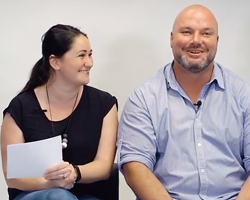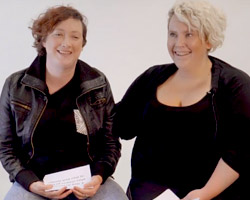
The type of foster care you decide on will depend on your own personal circumstances so take time to read through each one and also read about other carers experiences who have provided that type of care. In the longer term, many carers end up providing more than one type of care so it’s good to know them all before you make any decisions about what you want to do.
If you are not sure, there is no pressure, we can work through the options with you and you will learn more as you do your foster care training with us before you have to make any decisions.
In Canberra, we have four types of foster care. These include:
If you have any questions or would like to enquire about becoming a foster carer call us on1300 WEFOSTER or fill out our carer enquiry form.
Currently, the ACT is experiencing a shortage of foster carers for all types of care but particularly for short term or crisis foster carers for local children.
Short term or crisis carers, can care for children anywhere from 1 night to 2 years. These types of carers are crucial at the time of emergency action so need to be prepared on short notice to look after children and might even get a call in the middle of the night to help a vulnerable baby, toddler or teen.
During this period, regular contact may be expected with birth family so ideally you would have capacity to be able to get children to and from contact and sometimes be present at contact.
|
|
Crisis carers Jason and Tamara share their story
|
Concurrent care is of the highest priority in the ACT.
Concurrency care is not something that all states and territories do but is our most common type of care in the ACT and ideally the model of care for every child. What it means in practice, is that you are supporting restoration while also being committed to caring for a child permanently if restoration is not successful.
It may seem hard at first to comprehend that you can work towards two different outcomes at the same time but it means children are moved less often, reducing further trauma in their lives and you can have a profound effect on helping a family that needs your support and kindness.
As concurrent carers, you will be requested to take time off work to integrate the child into your home, affording the child and yourself the opportunity to start the process of attachment, the foundation to a successful care placement.
|
|
Hear about Sarah and Stacey's experience with fostering
|
You can see more real stories from our concurrency foster carers below:
As the name suggests, this type of care will be permanent. It is for children with long term orders that are not already in a concurrency placement. As these orders can take sometimes a few years to be granted, post attempts of restoration, children with care orders to 18 are typically not babies or toddlers. Contact with birth family is often less frequent than in short term/crisis care but still very important for a child’s identity, sense of belonging, as well as nurturing cultural identity.
If you are matched to provide long term care to a child or young person there will be an expectation that if deemed appropriate for that child, permanency orders will be pursued. Permanency orders include an Adoption order or Enduring Parental Responsibility orders.
|
|
Tony's story about being a long term foster carer
|
You can see more real stories from our long term foster carers and on adoption below:
This is care for short stays – generally one weekend a month. The aim is to give families a break and offer a positive experience for the child.
Respite offers people the ability to continue working full time and not miss out on having children in their lives, so can be very rewarding for single people or people whose children have left home.
Respite can be provided for a range of reasons, for example, to give other carers a break, to enable them to focus on other children in their care or it may be for a one off longer period while they need to travel or be in hospital for an operation.
ACT Together also provides some community respite, this respite is offered to families who have already or are at risk of becoming involved with child protection agencies. This support can be provided for many of the same reasons already mentioned but with the primary goal of preventing the children entering foster care.
For ongoing respite, we ask carers to commit to 12 months minimum. Many respite carers develop strong bonds with children and their families and may provide respite beyond this commitment period.
|
|
Dan and Marie-Ann's story on being respite foster carers
|
If you have any questions or would like to enquire about becoming a foster carer call us on 1300 WEFOSTER or fill out our carer enquiry form.










